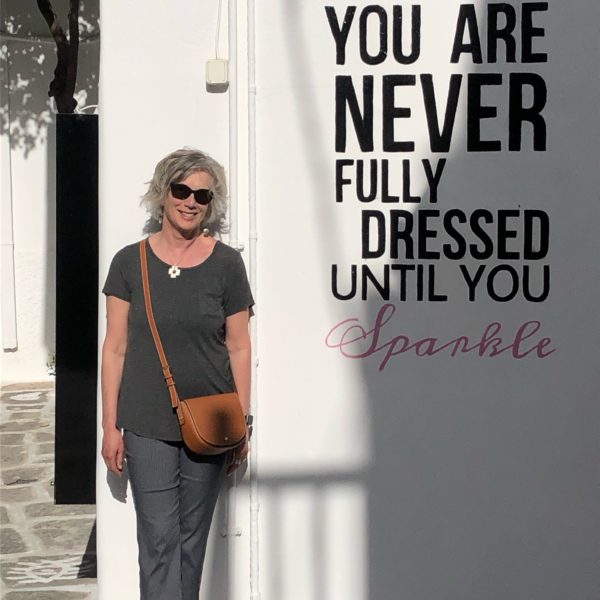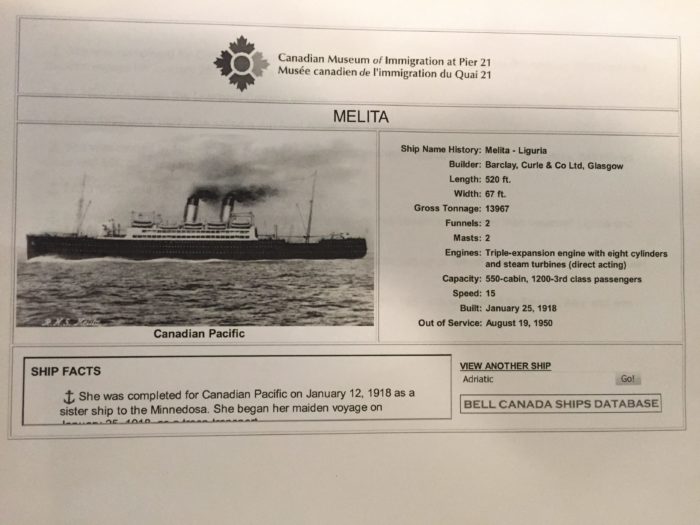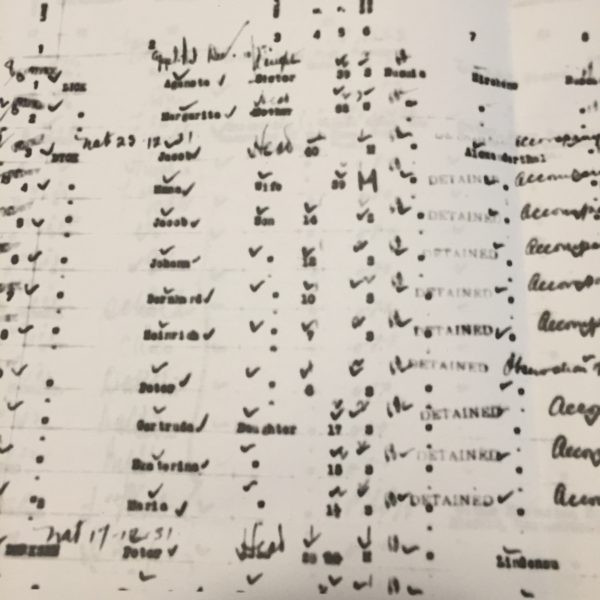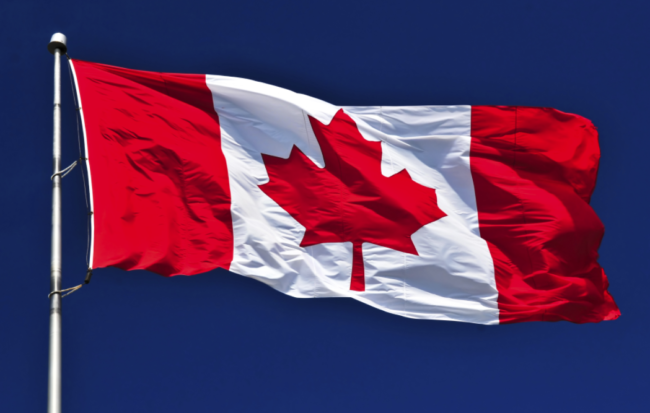Kelly Leitch, the one-time Conservative leadership hopeful, campaigned on the idea of asking new immigrants about their Canadian values.
A couple of her ideas for questions included:
- Are men and woman equal, and entitled to equal protection under the law?
- Do you recognize that to have a good life in Canada you will need to work hard to provide for yourself and your family, and that you can’t expect to have things you want given to you?
Ms. Leitch wasn’t saying anything particularly new. Her questions reflected newspaper opinions like the following:
“We have our own troubles with religious communities who refuse to obey the laws of the country. They have recently caused considerable anxiety to the province…”
“Our foreign element in Saskatchewan at present constitutes some 70 percent of the total population. Not a very brilliant prospect for democracy or a fair deal to the men and women who by toil, suffering, and endurance, have placed western Canada on the map.”
“We have no assurance that they will not complicate our own economic problems…”
“If we cannot obtain British and good northern European settlers it would be better to have no new immigrants at all.”
“It is doubtful if there will be in Canada any great enthusiasm to receive these (people). Apparently a great many Canadians think we have enough problems at this time over matters of language and race without taking on more.”
The only difference between Leitch’s views, and those newspaper quotes, is that the quotes are from the 1920s.
The prevailing sentiment at the time could be summed up as this: “British and American immigrants were regarded as the most desirable…close to the bottom of the pecking order were the pacifist religious sects, such as the German-speaking Hutterites and Mennonites, and the Russian-speaking Doukhobors…their pacifism raised doubts about their commitment to Canada.”
This is the societal climate my Mennonite mother entered when she arrived in Canada. She was only 1 1/2 years old. Little Maria Dyck arrived with her German-speaking parents and seven older siblings. Somehow they had escaped the warring factions in their village in Alexandratal, Russia and then made their way overland to Southampton, England, where they were stuffed aboard the vessel Melita. Steaming across the Atlantic, they disembarked in Montreal to then take the train to Saskatchewan. It would have been at the start of winter.
I have no idea how long all of that took, but it sounds harrowing at best. But then, once they arrived in their new country, things really got tough.
A few years after their arrival in Canada, Mom’s twin sisters were born, the only two of the ten children to be born in Canada. Shortly after the birth, their mother died. The oldest sister, my Aunt Gertrude, postponed her wedding to come home and mother the motherless children. Mom’s father quickly remarried. His new wife added her three children into the household but soon succumbed to her crippling arthritis and spent the rest of her days in a wheelchair.
Add in the failing farm and the Depression. We won’t even get into the fact that the Mennonites were being used as a way of colonizing and driving out the First Nations people. On it goes. Everything impacting everyone.
But let’s return to the story of my ancestor’s arrival in Montreal…
I have a vague recollection of a story my mother told. She was only a baby when they arrived, so obviously this was a family story that had been passed along and well-rehearsed. The story went that they somehow fooled the officials by switching some documents and ended up sneaking in one of my ancestral tribe into the new country with false or switched documents. Maybe one of them was sick? Possibly their mother was already ill with tuberculosis? I wish I had listened better.
Last month, while visiting the Canadian Museum of Immigration at Pier 21, I told the historian what I knew of this story. She smiled and said, “Unfortunately, once I find the documents, I usually put an end to many of these long-standing family myths.”
“But, in your case,” she said, pulling up the Melita’s passenger list, ” the fact that they were all detained tells me something suspect took place.”
“Could it have been because of illness?” I asked. “No,” she said, “they would have been quarantined if that was the case. Being stamped with ‘detained’ is different and not that common. If you can find out what happened, we’d love to have the story for our archives.”
So there you have it.
I have no idea how long they were detained, but somehow they made it out of there to begin the trek to Saskatchewan.
It turns out I might be the descendant of an illegal immigrant, hidden in the droves of undesirable, German-speaking, frumpily-dressed, non-assimilating Mennonite relatives.
With the long modest dresses, the preponderance of black, the funny little head coverings and with wedding vows that demanded wives submit to their husbands, well, we were the people that would have served as today’s argument for building a wall, creating a travel ban or demanding we take a pledge for Canadian ‘values’.
But hey. Nothing new is really that new. Racism is as old as the earth we inhabit. Vulgar rhetoric merely picks a new target every few generations. There is currently an unprecedented number of displaced people in our world; 65.6 million have been forced from their homes, and 22.5 million of those are refugees, over half of which are under the age of 18.
These refugees and displaced persons are simply looking for open doors and open hearts. Meanwhile all we hear is No. 45 spewing his ugly anti-Moslem hatred as he attempts to slam his nation’s door while kicking the Statue of Liberty to the curb.
But look. My mother was born on Russian soil. That little baby girl was swept up by history to land in a foreign country. Because of war, famine, and a bizarre opportunity, I am a Canadian. It is by sheer luck. I did not earn this right. I simply was born in the right place. Yet because of my passport, I am afforded all the blessings and attendant luxuries afforded Canadians, including access to good food and healthcare.
And tell me, aside from my proclivity to the wearing of black, am I any less Canadian then someone with a different background? Most importantly, now that I’m here, why wouldn’t I want others to have the same chance at a decent life for themselves and their descendants?
Let us remember our stories.
Let us remember to be kind and to be open-hearted.
Let us strive to be good citizens of the world.
Now is the time.
Please share this post as I am looking for any descendants of my relatives to shed more light on this story.






Colleen thanks again for such thoughtful words. I also wish that I had listened more closely and written things down at the time. We are blessed. Every day just waking up on Canadian soil is a luxury and a privilege. And one to be shared.
Mary, I know that you are one of the most grateful people I know. We are so blessed to have so much abundance in all things that matter. And yes, with all that we’ve been granted, we have a responsibility to share.
Colleen. Thank you for copying the reading. It always looks that the facilities are inadequate for the numbers of people who need to be cared for, so some die, the stronger ones survive. Does any government do enough for displaced people, in terms of infrastructure, schooling, health? As you say there are 22.5 million refugees at the moment, over half of which are under the age of 18. What kind of future can we offer to these young people? Are we doing all we can, as citizens of a country, to help and welcome refugees?
Catherine, I think we have to keep encouraging our governments to help and to do what we can personally. And then, I suppose, it’s to remember Mother Teresa’s quote when faced with the endless impoverished of India, “Never worry about numbers. Help one person at a time…”
I was fascinated by reading your Mom’s story. I can imagine that settling down in another country must be dramatic for parents and children. Yes we must keep our minds and hearts open to the plight of immigrants. I wish you good luck in your ancestry.
Catherine. It is amazing how resilient they all were to survive under such harsh conditions.
Last night I went to a reading and heard about the Irish immigrants who arrived in Canada in the spring of 1847. Today I found this…”shipload after shipload of fevered Irish arrived, quickly overwhelming the small medical inspection facility, which only had 150 beds. By June, 40 vessels containing 14,000 Irish immigrants waited in a line extending two miles down the St. Lawrence. It took up to five days to see a doctor, many of whom were becoming ill from contact with the typhus-infected passengers. By the summer, the line of ships had grown several miles long. A fifteen-day general quarantine was then imposed for all of the waiting ships. Many healthy Irish thus succumbed to typhus as they were forced to remain in their lice-infested holds. With so many dead on board the waiting ships, hundreds of bodies were simply dumped overboard into the St. Lawrence.”
Each generation, all over the world, millions of people endure unspeakable horrors simply because they want to live.
Delightful article Colleen. I love these stories. Thank you.
Thanks Glenn. We all have these stories. I wish I knew mine better but I’ve decided to finally start looking at that. Better late than never…or so they say.
You put into words, so incredibly well, the ideas and thoughts swimming around in my mind. So much of what your post says applies to my grandparents, coming from Belarus, wearing kerchiefs, felt socks, building and attending the little Greek Orthodox church in small town Saskatchewan, and eating food that many thought was disgusting… all to give their kids a better chance in life. And, they succeeded. I wish you were my daughter so I could be extra proud of you!!!
Blessings Sophie, but I think we should go for sisters. You’re much too young to be my mother
We all have these stories of how so much was lost and given up so that these brave people could make better lives for their children. And yet, so many people, who share these same stories are quick to slam the door on anyone coming behind them. That always staggers me.
I feel so ridiculously privileged – part of a generation that has seen no hardships. I feel that confers a responsibility upon me to make sure others are granted the same access.
I know our country has so much more work to do, especially when it comes to our shameful treatment of the First Nations. But I feel like we’re finally waking to that now and I am hopeful.
I also wish I had listened better and asked more questions.
Yes, AnneLise. We just didn’t know that it was important. Youth…wasted on the young
Colleen, you may have distant relatives in Pennsylvania, very near Philadelphia or near to where I grew up in central Penna.
Joan. I’m sure I do. The Mennonite gene pool is fairly wide and shallow